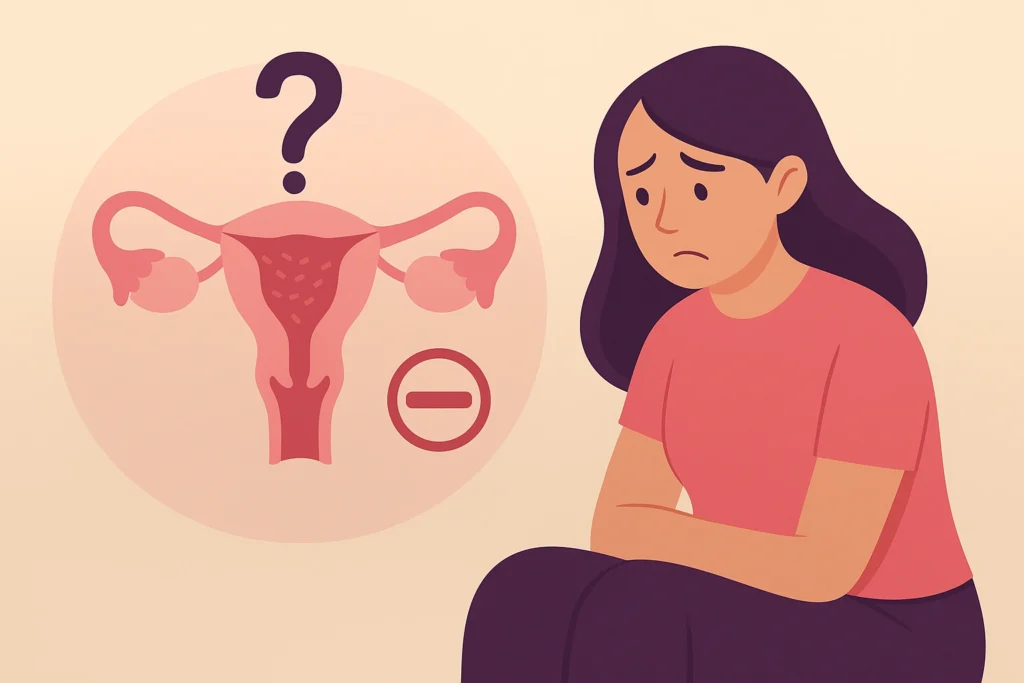Vaginal itching and burning can stem from infections, irritants, hormonal changes, or lifestyle factors, but most causes are identifiable and treatable. Understanding the triggers and seeking timely care helps protect long-term intimate wellness.
Introduction
Let’s explore the most common reasons behind vaginal itching and burning, when to seek medical care, and how you can protect your intimate health.
Common Causes of Vaginal Itching and Burning
1. Yeast Infections
One of the most frequent culprits is a yeast infection. Yeast is a type of fungus that normally lives in small amounts in the vagina, but when it grows excessively, it causes symptoms like intense itching, burning, and a thick, white discharge that looks like cottage cheese. Triggers include antibiotics, high sugar diets, uncontrolled diabetes, and even stress.
While over-the-counter antifungal creams can provide relief, recurring infections should be evaluated by a healthcare provider.
2. Bacterial Vaginosis (BV)
Unlike yeast, bacterial vaginosis occurs when the natural balance of “good” and “bad” bacteria in the vagina is disrupted. It often leads to burning sensations, especially during urination, along with a thin, greyish discharge that has a fishy odor. BV is not considered a sexually transmitted infection, but it is more common in sexually active women.
3. Urinary Tract Infections (UTIs)
Burning during urination and itching around the vaginal opening can sometimes point to a urinary tract infection. UTIs happen when bacteria enter the urinary system, causing symptoms like frequent urination, pelvic discomfort, and cloudy urine. If left untreated, the infection can spread to the kidneys and become serious.
For guidance on how to keep your urinary system healthy, you can check resources on UTI prevention.
4. Sexually Transmitted Infections (STIs)
Certain STIs, such as chlamydia, gonorrhoea, trichomoniasis, and genital herpes, can cause vaginal itching, burning, or unusual discharge. Some women may also experience pain during intercourse or notice small sores or blisters. Since STIs often don’t show symptoms early on, regular screening is essential if you are sexually active.
5. Allergic Reactions and Irritants
Sometimes the cause isn’t an infection at all, but rather an external irritant. Products like scented soaps, bubble baths, fabric softeners, or even certain brands of condoms and lubricants can trigger allergic reactions. These often lead to redness, itching, and discomfort. Switching to fragrance-free, hypoallergenic products can make a big difference.
6. Hormonal Changes
Declining oestrogen levels during menopause or after childbirth can cause the vaginal tissues to thin and dry, leading to burning and itching. This condition, known as vaginal atrophy, may also make intercourse painful. Topical oestrogen creams or hormone therapy can often help restore comfort.
7. Skin Conditions
Chronic skin issues such as eczema, psoriasis, or lichen sclerosis can also affect the vulva, causing intense itching and inflammation. These conditions may require specialized treatment from a dermatologist or gynaecologist.
8. Vaginal Discharge Variations
Discharge is a natural part of vaginal health, but changes in its colour, texture, or odour can signal infections or imbalances. White and thick may point to yeast, grey and thin to BV, while green or yellow could indicate an STI. If you’re unsure about what’s normal and what’s not, here’s a helpful resource on discharge types.
9. Poor Hygiene or Over-Cleansing
Both too little and too much cleaning can cause irritation. Failing to wash the genital area regularly may lead to bacterial buildup, while over-washing or using harsh cleansers strips away natural protective oils and bacteria, leaving the vagina vulnerable to infections. The key is balance: gentle, daily cleansing with mild, unscented soap and water is usually enough.
10. Stress and Lifestyle Factors
Believe it or not, stress, lack of sleep, and poor diet can contribute to vaginal discomfort. Stress weakens the immune system, making infections like yeast or BV more likely. Similarly, tight clothing and non-breathable fabrics can trap heat and moisture, creating an environment where bacteria and fungi thrive.
When to See a Doctor
While mild irritation can sometimes resolve on its own, it’s best to consult a healthcare provider if:
- Symptoms last more than a few days
- There is unusual or foul-smelling discharge
- You experience fever or pelvic pain
- Over-the-counter treatments don’t help
Prompt evaluation can prevent complications and help you get the right treatment faster.
How to Care for Vaginal Health
To reduce the risk of itching and burning, consider these tips:
- Wear cotton underwear and avoid tight clothing
- Practice safe sex and get regular STI screenings
- Limit use of scented soaps or hygiene products
- Stay hydrated and eat a balanced diet
- Practice good hygiene without over-cleansing
These simple steps support overall vaginal wellness and reduce the chance of recurring discomfort.
Conclusion
Itching and burning “down there” may feel alarming, but in most cases, the causes are identifiable and treatable. From infections like yeast and BV to irritants, hormonal shifts, and even stress, the key is to understand your body’s signals and seek medical advice when necessary. Taking preventive measures and paying attention to changes in discharge, urination, or skin health can help maintain balance and comfort.
At Well Women Clinic, expert private gynaecologist in London provides compassionate and specialized care for a wide range of women’s health concerns. From diagnosing and treating common issues like infections, unusual discharge, and urinary tract problems, to offering preventive guidance on UTI prevention and understanding discharge types, the clinic focuses on empowering women with knowledge and personalized treatment plans. Beyond addressing immediate symptoms, their holistic approach emphasizes long-term intimate wellness through routine screenings, tailored advice, and ongoing support. With state-of-the-art facilities and a team dedicated to women’s health at every stage of life, Well Women Clinic stands as a trusted partner in ensuring both comfort and confidence for their patients.





